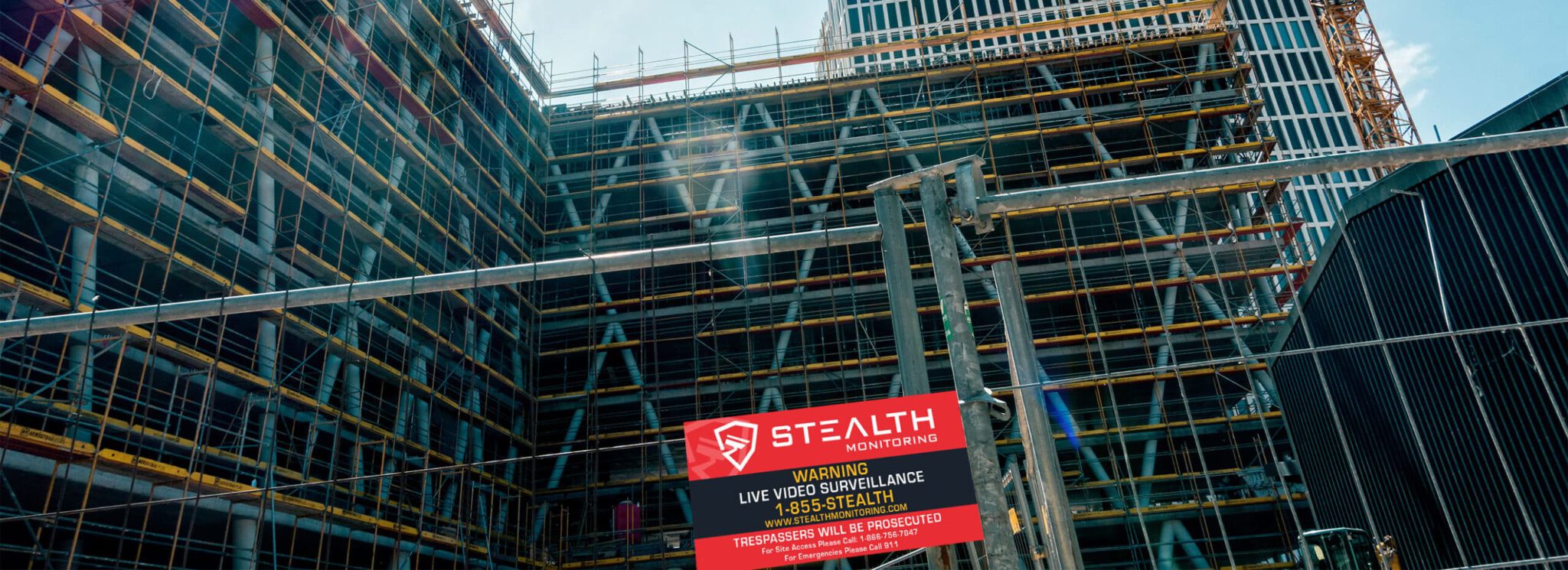You can do everything right to secure your construction site and still fall victim to general liability claims. Even if you carry general liability coverage, a lawsuit can cost you more than the insurance payout.
A liability claim can increase your insurance premiums. It can affect your reputation. It can hit your operational expenses. Worst of all, insurance may not deny a claim.
The good news is that you can cut your construction site’s risk of a fraudulent lawsuit and minimize liability claims. First, however, here’s a look at the different types of liabilities.
What Is Property Liability?
Property managers and owners have a duty to maintain a safe environment for everyone who steps on the property, including intruders. That means providing training, replacing broken equipment, supplying personal protective equipment (PPE), posting warning signs, and clearing hazards. When an employee, contractor, or visitor is injured on a property because of unsafe conditions, owners could be held liable.
A worker in New York City died when he fell down an elevator shaft. In Montana, a concrete column fell and hit a construction worker. Neither had to happen. It wasn’t a case of bad luck but of inadequate safety protocols and checks. Creating, documenting, maintaining, and using processes and procedures helps prevent these tragedies.
Trespassers and thieves can cause property liability
issues. For instance, a vandal who gets hurt on the construction site could successfully hold the company liable for the injury and win the lawsuit. Yes, even if they did not have good intentions when entering the property.
If your construction site is the cause of damage or an accident, property damage liability coverage may pay for the damage, hospital bills, and other costs. It also may cover legal costs if someone files a lawsuit related to the accident. The hardest part about such situations is that it’s hard to prove who is responsible.
That’s where remote video monitoring and video surveillance can help. It provides visual evidence of the incident showing who is responsible. With remote video monitoring, operators watch cameras in real time. If they see an intruder approaching the property, they can warn them using an audio speaker and call law enforcement.
These operators are not on the construction site. They’re far away from the site in a safe place where they watch the action. When they call the police, they keep them informed of the suspect’s location until the police arrive on the site.
The biggest liability issue in construction is property liability. However, it’s not the only one.
What Other Liability Issues Affect Construction?
Construction sites face unique liability situations causing construction managers to spend much of their time reducing risk and managing liability. Doing this requires ensuring the construction company abides by countless required processes and procedures.
Processes and procedures help the company comply with industry and government regulations. Managers know that if they fail to maintain compliance, it could put their construction site, project timeline and even potentially their business at risk.
The fact of the matter is that construction sites with their heavy equipment, tools, and materials are dangerous. No doubt, safety should be a top priority. Still, employees and contractors are human. They may miss a step or forget the Occupational Safety and Health Administration (OSHA) guidelines.
Businesses can be held liable for a crime without being involved in the crime. While the business may not be able to prevent crime, it can take steps to avoid enabling it. For instance, criminals could go to a construction site at night after everyone has gone home and use it as a meeting place to sell drugs or other illicit activities.
In this case, the construction site needs to implement measures to prevent intruders from entering the property. It can do this by installing a perimeter barrier, or fencing, and locking the site at night. However, fences can be cut, and the barriers can be scaled. That’s why you should consider adding another layer of security with remote video surveillance. Operators watching the cameras can quickly report the problem to your management team, or law enforcement.
Can Security Guards Cut Liability Risk?
At first, it may sound like a good idea to have security guards on site ready to respond as soon as a trespasser appears on the property. The reality is that security guards can increase liability for your construction site.
First, they can’t be everywhere on the property at all times. That would take a lot of guards to make that possible. The more guards you have on the property, the more expensive it gets.
Second, many news stories reveal security guards taking the wrong action. They end up being sued. Often, the lawsuit also includes their company and the property.
Security guards are not police officers. They don’t receive anywhere close to the same kind of training as the police do. States have different rules on what qualifies someone to be a security guard. Not all of them have a license to carry a weapon. Often, security guard company regulations allow the security guard to do nothing but call law enforcement, and do not allow the guard to intervene in the event.
Remote video surveillance helps mitigate liability and overcome the challenges companies run into with security guards. The presence of security cameras can deter some crime as well as prove liability.
Even during non-monitoring hours when the cameras aren’t being monitored, the video surveillance system records and captures everything. Analysts can search and review the recorded footage. They can submit them as evidence in property damage as well as other liability
cases.
How Video Surveillance Protects Against Liability Claims
Unfortunately, there are people who are willing to cause damage or fake an injury on a construction site in hopes of filing a lawsuit. Video surveillance alleviates that by being the eyes on the property and capturing everything to use as support in a liability claim.
That’s why it’s vital to limit liability and have a way to establish who is responsible for the incident. Video surveillance does that. It can also help to lower your insurance premiums as it shows the company that you’ve taken steps to reduce your risk.
If security guards are a liability, could video surveillance be a liability too? Actually, Video surveillance lowers liability. There are court cases that reinforce this.
7 Ways to Prevent General Liability Claims
Video surveillance is a big factor in staving off liability issues on a construction site. It’s not the only thing a construction site can do. Here are seven ways to reduce liability
claims including video surveillance.
- Video surveillance: It can catch problems before damage or accidents happens. It helps to deter unwanted visitors. It can provide evidence in liability claims.
- Regular communication:
Include clients, contractors, and employers in conversations. The more they know, the less likely they’ll ignore protocol. - Adequate lighting: Not only does the site of the action need lighting, but also the parking lot, corridors, and storage areas. When everyone goes home for the day, the lights should stay on to scare away potential intruders.
- Secure work area:
Install fencing and use tape to indicate the area is off-limits. Try to set up the site so that there’s only one entry and exit point. These should always be clear of obstructions. - Involve employees:
Safety is not just management’s job. It’s employees’ too. Encourage them to say something when they see problems. Create a way for them to anonymously report problems so they don’t keep quiet in fear of retribution. - Do the job right:
Encourage employees to follow processes and procedures. Don’t rush them to make a deadline. If they’re rushed and something happens, it could cost you more than missing the deadline. Doing the job right means testing pipes and water systems early in the project, inspecting materials for defects, and installing things properly. - Use good business sense:
Don’t tear down the competitor or talk poorly about clients. This applies to all your marketing efforts. Any badmouthing or inappropriate use of names and images could lead to copyright claims, libel, or slander.
These seven ways can help counter liability claims. It sounds like a lot of work, but a lawsuit can do damage a business in ways beyond the bottom-line.
Before You Invest in Video Surveillance
It’s tempting to install video cameras and not have anyone watch them. After all, the sight of video cameras along with “area under surveillance” warning signs help deter some crime. They can reduce your risk, but it still leaves you open to liability.
Hiring the wrong video surveillance company can also cause problems. If they don’t install the right kind of cameras in the right places, you’re not maximizing the power of video surveillance. Talk to multiple video surveillance companies. Ask lots of questions. Ask for examples of videos. Ask for the names of their customers. Ask for case studies. Ask how long they store the video.
Construction sites deal with more than injuries and damage. They also deal with vandalism, inclement weather, and trespassing. Video surveillance keeps eyes on your property.
Here are videos of how Stealth Monitoring uses video surveillance:
Stealth’s proactive video surveillance system combines video analytics and human intelligence for the highest level of security. It delivers many more benefits beyond liability protection. You get faster response times and complete site monitoring.
You’ll obtain a fast ROI. Stealth’s video surveillance service boosts productivity, increases safety, and lowers insurance premiums. The video surveillance system can replace security guards at a fraction of the cost.
In working with Stealth Monitoring, you have many construction security options. The best one depends on your needs. Stealth will design a plan to meet your requirements
To learn more about video surveillance in construction, please contact us.

